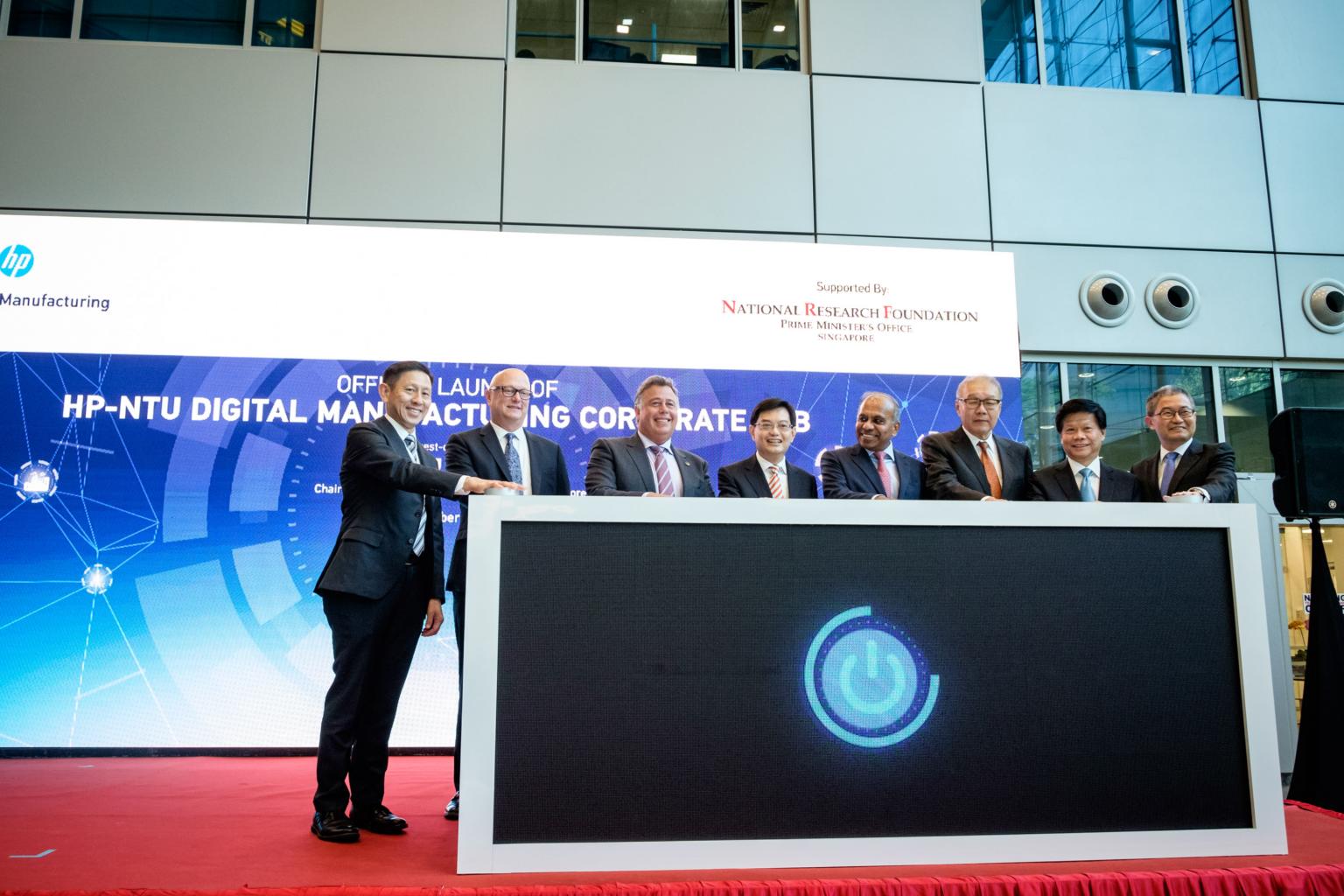NTU, HP launch $84m lab to develop digital manufacturing technologies
Sign up now: Get ST's newsletters delivered to your inbox

This is HP's first university laboratory collaboration in Asia.
PHOTO: NANYANG TECHNOLOGICAL UNIVERSITY
SINGAPORE - A corporate research laboratory set up in partnership with tech giant HP was officially opened at the Nanyang Technological University (NTU) on Tuesday (Oct 23).
The $84 million laboratory and its 100 researchers and staff will focus on digital manufacturing technologies, specifically in areas of advancing 3D printing, artificial intelligence, machine learning, new materials and applications, cyber security and customisation.
The collaboration, which is in line with the national push towards industry transformation, will also include developing educational curriculum on designing for additive manufacturing. It will cover areas such as data management, security, user experience and business models.
This is HP's first university laboratory collaboration in Asia.
The partnership was inked on Tuesday by NTU vice-president of research Lam Khin Yong and Mr Shane Wall, HP chief technology officer and head of HP labs.
Finance Minister Heng Swee Keat, who is also the chairman of the National Research Foundation Singapore (NRF), officially opened the lab.
The NRF facilitates setting up corporate labs via public-private partnerships. This is the 13th it has supported and the seventh such lab at NTU.
NRF chief executive Low Teck Seng said: "Corporate laboratories are an integral part of our strategy to anchor joint R&D partnerships between our universities and companies in areas that have direct relevance to the growth of industries in Singapore."
He added that the new lab is significant to the country's long-term competitiveness in the advanced manufacturing sector.
"It will also strengthen our capabilities to support multi-national companies for expansion from Singapore into the region," said Professor Low.
NTU president Subra Suresh said the partnership with HP is a significant milestone for NTU, as 3D printing - along with adjacent technologies such as artificial intelligence, machine learning and cyber security - are integral parts of the Fourth Industrial Revolution.


